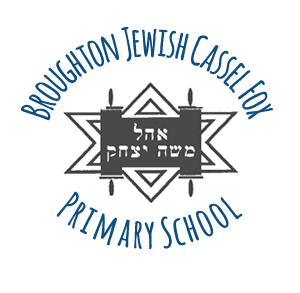History Curriculum Statement
Intent
Our history curriculum has been specifically tailored to meet the unique context of our school and is linked to our English topics throughout school following the success of this model through home learning. It is designed to be broad and balanced, providing all pupils with the opportunity to master their learning and deepen their knowledge, making sense and giving purpose as to why we learn about history and the impact of history on our lives today.
At Broughton Jewish we follow a broad and balanced history curriculum giving pupils the opportunity to build, master, and deepen their knowledge and understanding of Britain’s past and that of the wider world. We recognise that our city and our community are a vital resource to inspire pupils’ curiosity and to celebrate their own heritages.
We aim to build high levels of competence in the subject specific skills of:
- Chronological Understanding
- Contextual Knowledge and Conceptual Understanding.
- Historical Enquiry
Implementation
History is taught through the framework of the 2014 National curriculum. The principles and content of its requirements have been carefully placed at the heart of the school’s programme of study in history.
We follow a curriculum overview based on topics. These plans are closely linked to the school’s Age- Related Expectations (ARE’s) in history for each year group, which allows a consistent application of the curriculum throughout the Key stages. A curriculum coverage file is kept for each cohort. This enables both class teachers and the subject leader to monitor coverage and identify progress made throughout the lifetime of a cohort in the school.
A whole school system is used which links the ARE to each child’s own research and classroom studies and assessment.
This is done through:
- Higher order questioning: with specific overriding questions for each History unit
- Knowledge organisers: with key facts, vocabulary and timelines to help children link prior learning
- KWL: used as a prior learning, monitoring and assessment tool
- We cover important events in World, British and Jewish culture through our assemblies
Assessments are carried out in various forms.
- Quizzes, projects, fact files and reflective KWL grids.
Outcomes from these are used to inform teachers which areas have been covered and to what extent the year-group achieved the AREs. This combined with other forms of monitoring help to inform aspects of learning that need to be strengthened to improve the quality of provision and to enhance pupil progress.
Impact
A high quality history education feeds into all areas of the curriculum. Skills and knowledge gained are particularly relevant to Science, Mathematics, English and Geography. These skills are enhanced and embedded through Kodesh curriculum.
Children will:
- Gain skills of critical thinking and acquire new vocabulary.
- Develop the ability to debate the quality of evidence and to think through an argument.
- Build perspective through chronology of history topics.
- Develop research and presentations skills, which can be used alongside ICT and Art and Design mediums.
We challenge pupils to begin to understand the complexity of people’s lives, the process of change, the diversity of societies and relationships between different groups, as well as their own identity and the challenges of their time.

